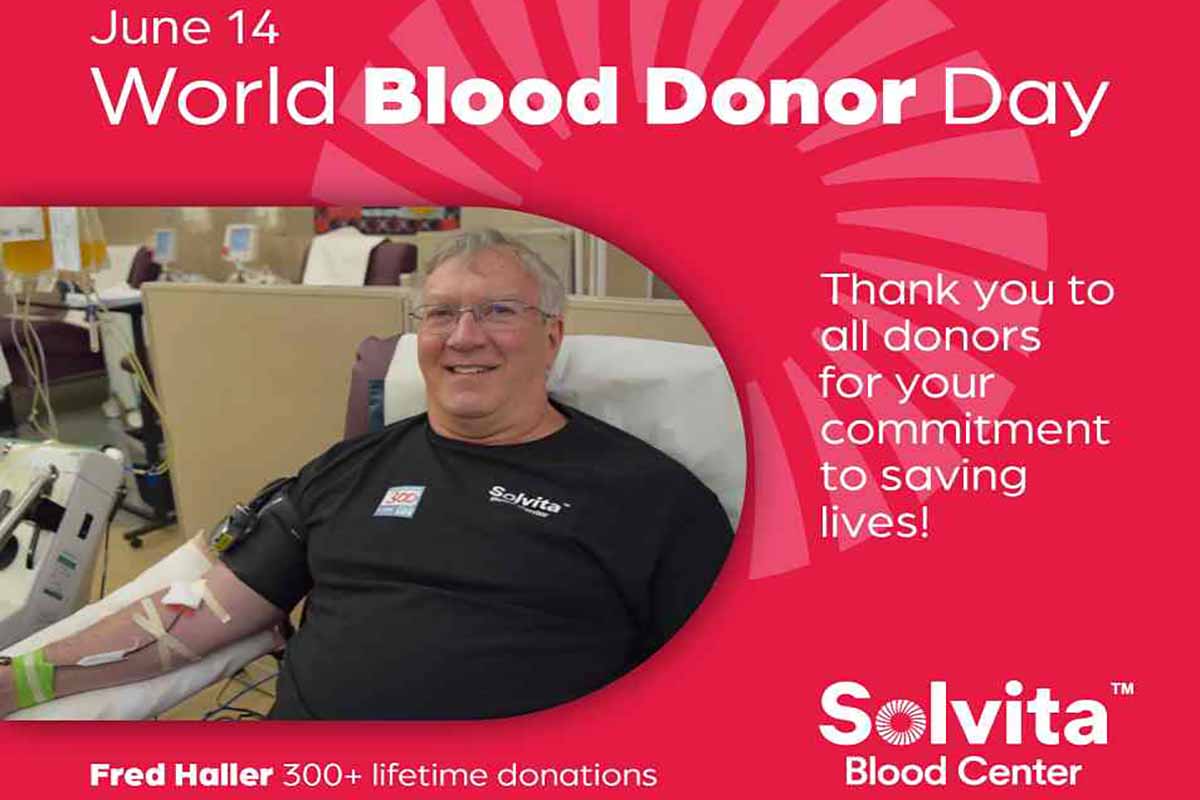
DAYTON, Ohio – Solvita joins partners and communities around the world in celebrating the 20th anniversary of World Blood Donor Day on June 14.
WBDD is an opportunity to thank blood donors for their lifesaving donations and to honor their impact on patients.
It is also a time to address the challenges of providing a safe and adequate blood supply, and to promote a future where safe blood transfusions are universally accessible.
The World Health Organization reports a marked difference in the level of access to blood between low and high-income countries. High income countries represent 16% of the world population but collect 40% of blood donations worldwide.
There are three types of blood donors: Voluntary, unpaid donors; family members of patients who are asked to donate to replace the blood used by the patient; and paid donors.
Voluntary, unpaid donors is the safest group of donors, with the lowest prevalence of bloodborne infections.
In total, 79 countries collect more than 90% of their blood supply from voluntary unpaid blood donors; however, 54 countries collect more than 50% of their blood supply from patient family members or paid donors.
The U.S. benefits from a voluntary national program with safe and accessible blood transfusions, but supply is not always adequate. Solvita enters World Blood Donor Day with a critical need for type O and B blood, and low supply of multiple blood types. The summer vacation season is a challenging time for Solvita to register the 350 donors needed every day to supply area hospitals.
Solvita will celebrate WBDD and Father’s Day weekend Friday, July 14 with a free hot dog lunch for registered donors at the Solvita Dayton Center, plus the choice of a Kroger $10 gift card or $10 e-gift card.
Schedule an appointment to donate with Solvita (formerly Community Blood Center) on the Donor Time app, by calling (937) 461-3220, or at www.donortime.com. Walk-ins are welcome at the Solvita Dayton Center, 349 S. Main St.
WBDD objectives: 1) Recognize and thank the millions of voluntary blood donors, 2) Showcase the achievement of national blood programs, 3) Highlight the continuous need for unpaid, volunteer blood donations to achieve universal access to safe blood transfusions, 4) Promote regular blood donations among young people and the public, 5) Increase the diversity and sustainability of the blood donor pool.

